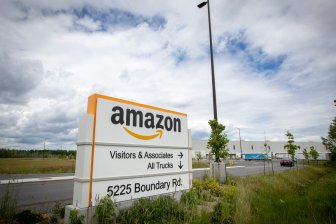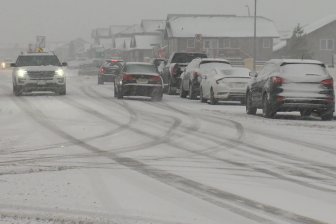Saskatchewan is anticipating to obtain near 180,000 doses of the coronavirus vaccine early subsequent yr.
However in accordance with an Angus Reid Institute poll, individuals are extra hesitant than not, in relation to getting the shot.
In Saskatchewan, simply 31 per cent of respondents stated they’d get a vaccination “as quickly as one turned out there.”
Nationally, 40 per cent of respondents stated they’d get a vaccine instantly.
Learn extra:
Saskatchewan to receive 180K coronavirus vaccines: health minister
Thirty-six per cent of Saskatchewan respondents stated they’d finally get vaccinated, however would wait first.
Twenty-five per cent stated they’d not get a coronavirus vaccine, which is tied with Alberta for the very best proportion within the nation.
Eight per cent responded “unsure.”
“Canadians are not any extra keen to avail themselves of a vaccine than they have been two months in the past,” in accordance with the ballot.
“Certainly, they’re much less keen to get one as quickly as attainable than in July, when the event and success of a vaccine was removed from sure.”

Dr. Nazeem Muhajarine, an epidemiologist and University of Saskatchewan professor, says there are two causes for the rising hesitancy.
[ Sign up for our Health IQ newsletter for the latest coronavirus updates ]
The primary purpose is the politicization of COVID-19 therapies that stem from rhetoric in the US and Russia, he stated.
The second is what Muhajarine calls the “info-demic.”
“The misinformation and the disinformation circulating concerning the virus, the pandemic and the therapy are related to individuals being much less keen to immediately get a vaccine,” he stated.
“That’s actually casting doubt on the virus itself and the pandemic itself—simply having every kind of theories of the origins of the virus.”
Learn extra:
USask’s Vido-InterVac nearing human clinical trials for COVID-19 vaccine
The College of Saskatchewan helped conduct an analogous survey in September, in accordance with the physician.
A gaggle of 1,300 Saskatchewan residents was requested about their vaccine willingness. Fifty-six per cent of respondents stated they’d get a vaccine, though it didn’t distinguish between those that would get it instantly and those that would wait.
The survey, which categorized age and gender, discovered that these between the ages of 65 and 74 have been almost definitely to get vaccinated with 75 per cent of the group responding in favour.

Nonetheless, extra individuals should be keen to get vaccinated, if Saskatchewan desires to succeed in herd immunity, in accordance with Muhajarine.
“We need to have about 80 per cent of our inhabitants getting the vaccine to ensure that the vaccine to be efficient,” he stated.
“Herd immunity is a collective safety that applies to individuals who may not get a vaccine. The 20 per cent may be protected as a result of 80 per cent of the individuals have gotten the vaccine.”
Learn extra:
Canada could get multiple coronavirus vaccines. Experts say there are unique challenges
The findings additionally present hyperlinks between vaccine willingness and masks use.
“We noticed a correlation between those that stated they’d not put on a masks, they don’t constantly put on a masks, and those that stated they’d not get a vaccine,” Muhajarine stated.
The important thing to enhancing willingness is training, he stated.
Muhajarine says a government-initiated public consciousness marketing campaign backed by the Saskatchewan Well being Authority would assist fight vaccine and COVID-19 misinformation, in flip encouraging residents to get a vaccine.
He says the general public’s willingness can even change as extra information and analysis turns into out there.
“They’ll see the info, which is starting to return out, and that may give larger confidence for individuals who may be type of sitting on the fence.”

© 2020 International Information, a division of Corus Leisure Inc.

